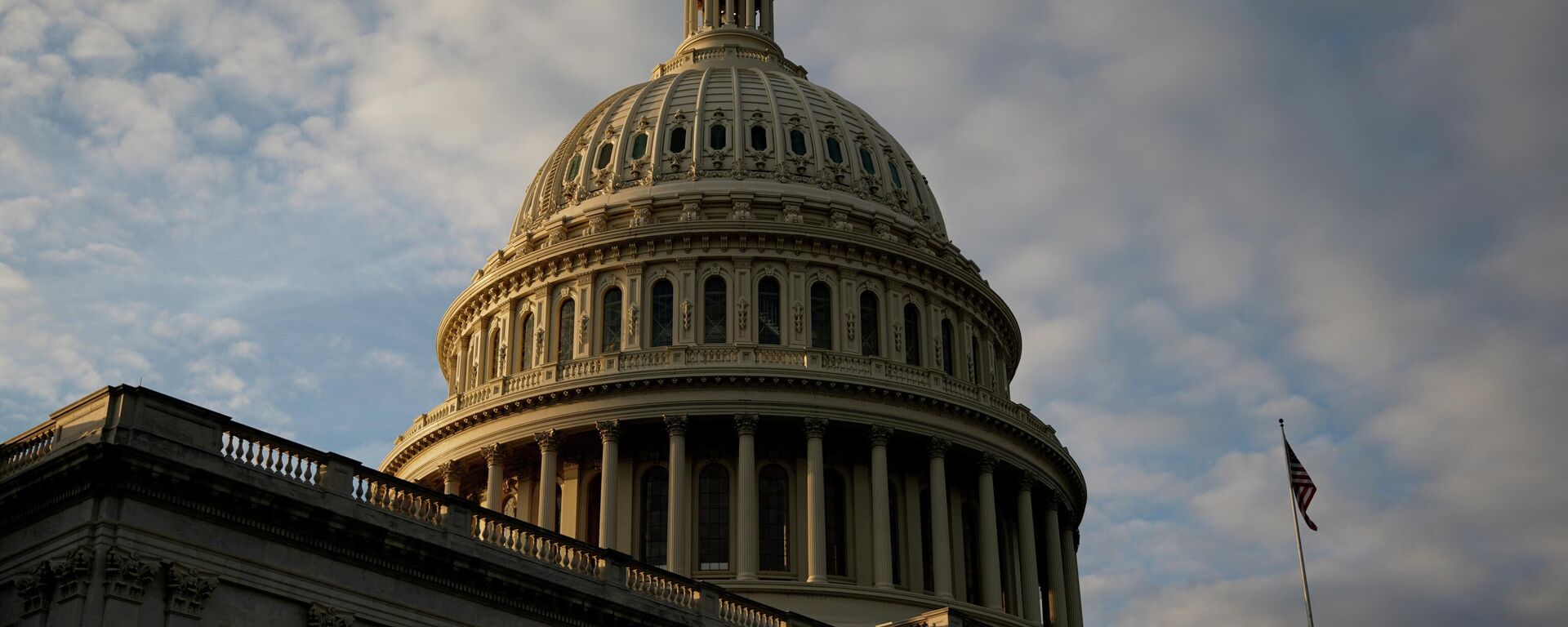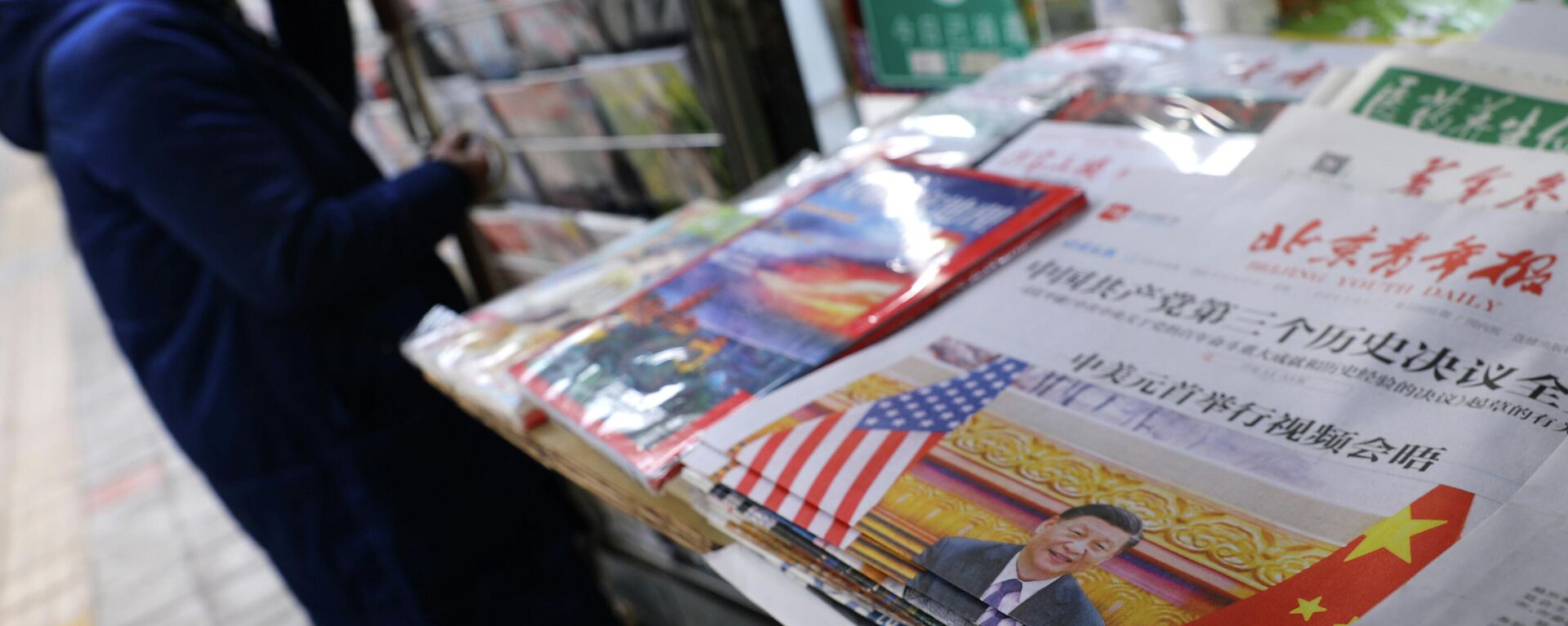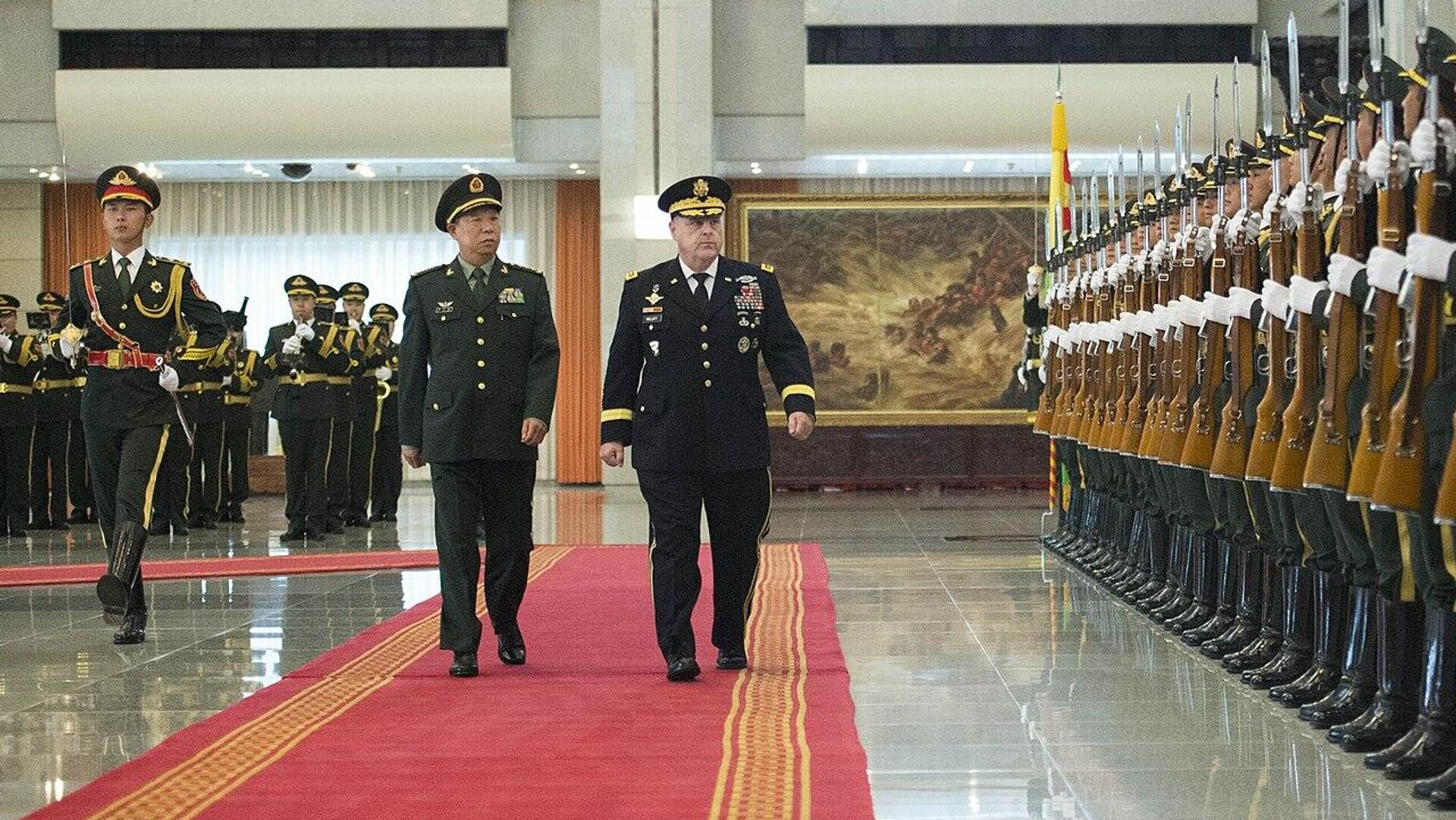https://sputnikglobe.com/20211209/investor-who-predicted-2008-crash-warns-of-growing-danger-of-military-clash-between-us-and-china-1091392107.html
Investor Who Predicted 2008 Crash Warns of Growing Danger of Military Clash Between US and China
Investor Who Predicted 2008 Crash Warns of Growing Danger of Military Clash Between US and China
Sputnik International
The world economy has been struggling to rebuild from the recession sparked by the coronavirus pandemic and the associated lockdowns, which led to a sharp rise... 09.12.2021, Sputnik International
2021-12-09T15:26+0000
2021-12-09T15:26+0000
2021-12-09T15:26+0000
america
china
war
prediction
investor
https://cdn1.img.sputnikglobe.com/img/07e5/09/1c/1089477191_0:74:1280:795_1920x0_80_0_0_e25fa12aa5d8c4f8963c48ef05e37fa2.jpg
Ray Dalio, the American billionaire investor and hedge fund financier who successfully predicted the 2008 financial collapse, and the long Covid-19-related economic recession, has expressed fears that the world may be headed for a new calamity sparked by the fierce competition between the United States and China.In a segment on CNBC touting his upcoming book ‘Principles for Dealing with the Changing World Order’, which outlines the cycle of the rise and decline of great powers in history, Dalio suggested that the US today was in the middle of a decline, and that the rise of China threatens to spark a global conflagration that would be disastrous for everyone involved.“When you become the largest trader in the world, the largest exporter and trader, then what happens is two things: your currency becomes the world currency, we call that a reserve currency, and you also develop a military to be able to protect those [trade] lines, so those powers grow. But as you become a reserve currency, that gives you the exorbitant privilege of being able to borrow by others who want to save in your money, and that creates more and more levels of indebtedness,” the investor explained, describing the current trends facing the US.The hedge fund manager pointed to the US inflationary crisis, which he suggested was really only starting to be felt by consumers, and commented on a type and magnitude of the internal partisan conflict being experienced by the US today which he said was “greater than at any time since 1900,” which impacts the stability of the system itself. “History has shown [that] when the causes that people are behind are more important to them than the system, the system is in jeopardy,” Dalio stressed.As for the growing danger of a hot war between the US and China, Dalio, who has spent over three decades studying and investing in the Asian economic powerhouse, said that he was worried about “how that conflict is emerging, and how stereotypes are being made, and lack of understanding about what the other’s perspective is. It’s almost a mentality like ‘we’re going to fight, rather than understand each other’, and that’s a dangerous set of circumstances.”Asked about what advice he would give US policymakers to try to lessen these dangers, Dalio said this would included “calming things down in the United States” itself, and when it comes to China – trying to understand that country’s perspective, and “most importantly, realizing that if there is not a resolution and there’s war, that that is the worst possible outcome. The world would be a terrible, terrible place if that happens,” he noted.“And so to make the priorities [in both countries] to find what are their existential issues, and how can you get through that in a peaceful way through trying to develop a win-win relationship of understanding. Because history shows that anybody who went into wars, even those who were most in favour of wars, regretted it, because of the terrible circumstances that would arise,” the investor concluded.
https://sputnikglobe.com/20211202/democratic-republican-house-leaders-reach-deal-on-funding-government-to-avoid-shutdown-1091205948.html
https://sputnikglobe.com/20211118/biden-xi-temporarily-reduce-tensions-but-no-progress-on-taiwan-south-china-sea-analyst-says-1090814832.html
china
Sputnik International
feedback@sputniknews.com
+74956456601
MIA „Rossiya Segodnya“
2021
News
en_EN
Sputnik International
feedback@sputniknews.com
+74956456601
MIA „Rossiya Segodnya“
Sputnik International
feedback@sputniknews.com
+74956456601
MIA „Rossiya Segodnya“
america, china, war, prediction, investor
america, china, war, prediction, investor
Investor Who Predicted 2008 Crash Warns of Growing Danger of Military Clash Between US and China
The world economy has been struggling to rebuild from the recession sparked by the coronavirus pandemic and the associated lockdowns, which led to a sharp rise in unemployment, the collapse of global tourism and hospitality sectors and many small businesses, declining consumer spending and major increases in debt and inequality worldwide.
Ray Dalio, the American billionaire investor and hedge fund financier who successfully predicted the 2008 financial collapse, and the long Covid-19-related economic recession, has expressed fears that the world may be headed for a new calamity sparked by the fierce competition between the United States and China.
In a
segment on CNBC touting his upcoming book ‘Principles for Dealing with the Changing World Order’, which outlines the cycle of the rise and decline of great powers in history, Dalio suggested that the US today was in the middle of a decline, and that the rise of China threatens to spark a global conflagration that would be disastrous for everyone involved.
“When you become the largest trader in the world, the largest exporter and trader, then what happens is two things: your currency becomes the world currency, we call that a reserve currency, and you also develop a military to be able to protect those [trade] lines, so those powers grow. But as you become a reserve currency, that gives you the exorbitant privilege of being able to borrow by others who want to save in your money, and that creates more and more levels of indebtedness,” the investor explained, describing the current trends facing the US.
“When that moves along, and then you have a bad set of circumstances, you can’t make the same money and credit, and if you’re spending more than you’re earning, and at the same time have the internal conflict…and you have an external conflict because of that external force, that creates the risky situation that we’re in, and that we’ve seen repeat over time,” Dalio said.

2 December 2021, 16:01 GMT
The hedge fund manager pointed to the US inflationary crisis, which he suggested was really only starting to be felt by consumers, and commented on a type and magnitude of the internal partisan conflict being experienced by the US today which he said was “greater than at any time since 1900,” which impacts the stability of the system itself. “History has shown [that] when the causes that people are behind are more important to them than the system, the system is in jeopardy,” Dalio stressed.
As for the growing danger of a hot war between the US and China, Dalio, who has spent over three decades studying and investing in the Asian economic powerhouse, said that he was worried about “how that conflict is emerging, and how stereotypes are being made, and lack of understanding about what the other’s perspective is. It’s almost a mentality like ‘we’re going to fight, rather than understand each other’, and that’s a dangerous set of circumstances.”
The billionaire stressed that of the five types of possible wars which have been waged historically (trade, technology, geopolitical influence, capital, and military), China and the US are already engaged in four of them, and the risk of the fifth is growing.
Asked about what advice he would give US policymakers to try to lessen these dangers, Dalio said this would included “calming things down in the United States” itself, and when it comes to China – trying to understand that country’s perspective, and “most importantly, realizing that if there is not a resolution and there’s war, that that is the worst possible outcome. The world would be a terrible, terrible place if that happens,” he noted.
“And so to make the priorities [in both countries] to find what are their existential issues, and how can you get through that in a peaceful way through trying to develop a win-win relationship of understanding. Because history shows that anybody who went into wars, even those who were most in favour of wars, regretted it, because of the terrible circumstances that would arise,” the investor concluded.

18 November 2021, 02:52 GMT



